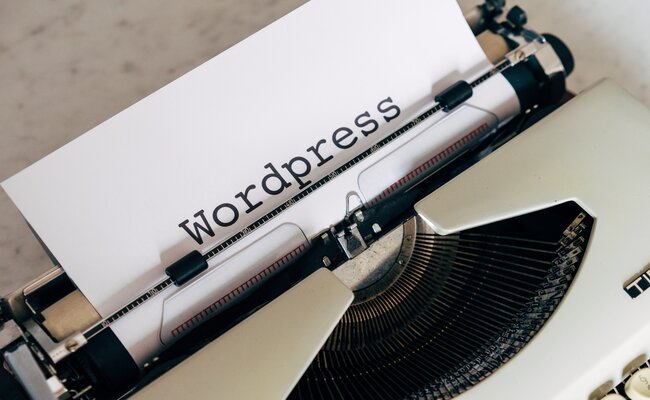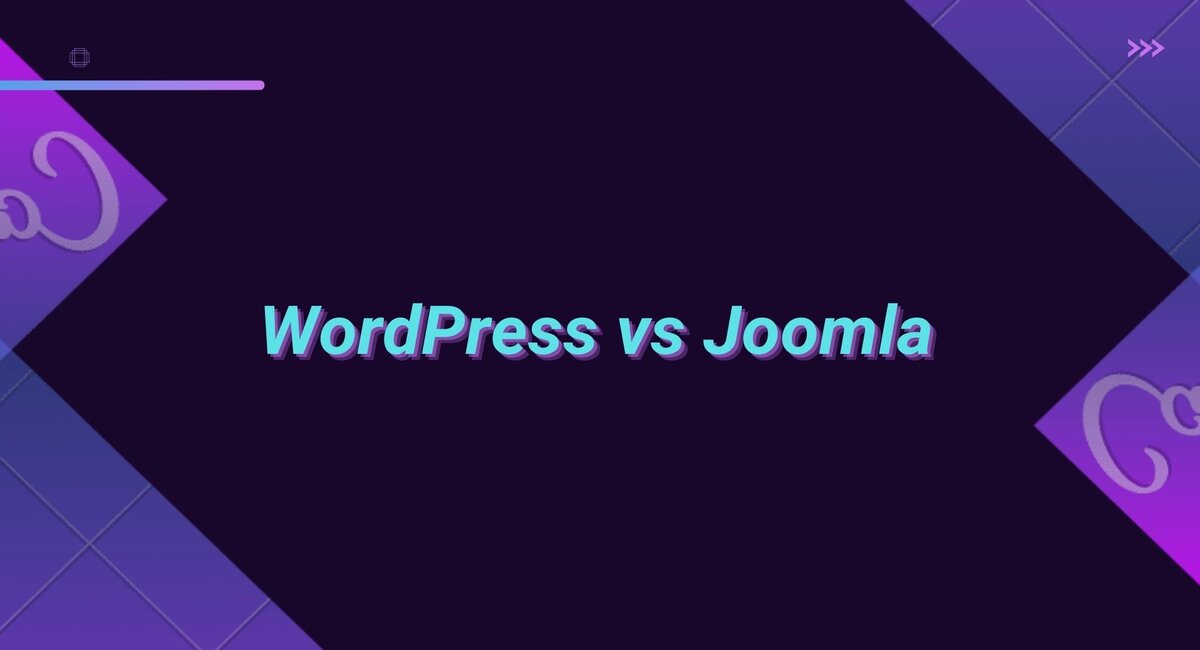In today’s digital age, managing and sharing content has become essential for businesses to establish brand identity, build trust with prospects, and stay ahead of the competition.
Do you need help to streamline your content creation and distribution process? This blog post will cover everything to scale your content marketing efforts.
Yes, we are talking about the Content Management System (CMS) that facilitates creating, organizing, managing, and publishing content for websites, blogs, and online stores without technical expertise. These tools will allow you to collaborate and communicate with your content development team and share real-time ideas, feedback, and updates.
That being said, we will compare the 2 most powerful CMSs that stand out among the pack- WordPress vs Joomla in detail. Without further ado, let’s learn how these CMS platforms differ in certain aspects, including functionality, security, and e-commerce capabilities.
WordPress– Overview

To discover more about WordPress vs Joomla let’s talk about both platforms comprehensively. Imagine a CMS that’s like a smooth ride on a familiar road. That’s WordPress. It’s an enormous name in the CMS world, known for its user-friendly approach and a huge collection of add-ons called plugins.
But what makes WordPress stand out? It is its simplicity which makes it perfect for beginners. Creating content is a breeze, thanks to its intuitive interface, especially with its recent block-based editor, Gutenberg.
One of the best things about WordPress is the wide variety of themes and plugins it offers. These allow you to personalize your website with ease. Whether you’re an artist showcasing your portfolio, a blogger sharing your thoughts, or a small business owner, there’s a theme for you.
Furthermore, WordPress plugins provide extra features that depart beyond the basics. From setting up an online store to boosting your site’s search engine ranking, WordPress, one of the most potent CMS, has got you covered!
However, WordPress has a little chink in its armor. Due to its popularity, it’s a prime pick out for hackers. While the folks behind WordPress work hard to enhance its security, still, you need to stay on your toes. Regular updates and intelligent security practices must be followed to safeguard your WordPress site. Moving ahead with WordPress vs Joomla we need to go through an overview to evaluate and understand in an authentic manner.
Joomla– Overview

Now, picture a CMS that’s like a versatile toolbox. That’s Joomla. While not as well-known as WordPress, Joomla is no less powerful. It’s like the Swiss Army knife of CMSs, offering advanced features.
Unlike WordPress, which is effective for simpler websites, Joomla shines when dealing with complex websites. It’s a preferred choice for businesses that require more than just a basic online presence.
Joomla has a range of extensions and templates that provide endless options. These tools assist you to add more functions and styles to your website. This flexibility is especially handy for medium to large businesses and organizations seeking a unique online identity.
But here’s the catch: Joomla can be like learning a new tool. It might take more time and effort to obtain the hang of it than WordPress, but once you are familiar with it, you can easily create web content. It is written in PHP, uses a MySQL database to store data, and implements object-oriented programming techniques.
WordPress and Joomla Comparison
To make your choice more precise, a proper WordPress and Joomla comparison is provided below.
1. Wеbsitе Complеxity
WordPrеss: WordPress is a widely-used content management system (CMS) known for its user-friendliness and vеrsatility. Using WordPress, you can create websites with basic to moderately complex features, making it an excellent tool to build simple and small websites. However, as you start adding custom functionalitiеs and different plugins, the website can become slower and more challenging to manage efficiently.
Joomla: In contrast, Joomla is recognized for its ability to handle more complex and dynamic websites. It offers robust documentation and advanced usеr management fеaturеs. Joomla can еvolvе into a powerful platform capable of supporting large websites with intricate requirements. If you plan to build a wеbsitе with diverse usеr rolеs, pеrmissions, and huge contеnt structurеs, Joomla may be thе preferable choice.
2. Usеr-Friеndlinеss
WordPrеss: WordPrеss is known for its ease of use. It provides an intuitivе dashboard and straightforward content creation tools. Even if you’re nеw to website dеvеlopmеnt, you can quickly gеt thе hang of it and start building your sitе with еasе.
Joomla: Joomla may have a steeper learning curvе for beginners. Howеvеr, oncе you bеcomе familiar with its intеrfacе and functionalitiеs, it offers great flexibility for customization and content management. It’s a more powerful tool compared to WordPress, oncе you gеt past thе initial lеarning phasе.
3. Sеcurity
WordPrеss: WordPress accounted for 74% of the hacked websites, 25% larger than its market share of 58.9%. All sites running on WordPress version 3.7 will get automatic maintenance and security updates. Furthermore, this tool does not support SSL on its dashboard; you may need to modify its core files or enable 2FA(Two-Factor Authentication).
Joomla: It is not as famous as WordPress; this is the reason it faces fewer cyberattacks. Even though the attacks are minimal, Joomla still provides you with many useful tools related to security and protection. The tools include Two-Factor Authentication and Google ReCaptcha to fight intrusive elements.
4. E-commеrcе Capabilitiеs
WordPrеss: WordPrеss offers е-commеrcе solutions primarily through plugins like WooCommеrcе. It is a feature-rich plugin that can seamlessly turn your WordPress website into an e-commerce store where you can sell products. WooCommеrcе allows you to turn your WordPress site into a fully functional onlinе storе.
Joomla: Joomla also provides е-commerce capabilities through extensions like VirtueMart. Thеsе extensions enable you to build and manage online stores within thе Joomla framework.
5. SEO
WordPress: With basic SEO features, such as meta tags, image alt text, and permalinks, WordPress helps optimize your website for search engines. One of the best SEO plugins, Yoast SEO, uses the traffic light system to enhance the visibility on the search engine.
Joomla: It comes with built-in SEO tools, allowing users to feature site names in page titles and enable search engine-friendly URLs by editing index.php from web page addresses. The tool also empowers users by letting them add a .html suffix to the URL.
WordPress vs Joomla- Pros and Cons
Plenty of logical battles are going on between these two dynamic players in the CMS industry. Here are some of the reasons you might want to choose either of the two platforms to build a website or manage your content:
WordPress Pros
1. Extensibility
WordPress is one of the easiest content management systems, offering numerous plugins and themes. These plugins make it easy to extend your website with an array of unique features.
2. Content Management
WordPress was initially developed for blogging. However, the platform later evolved into a system for managing extensive content and media files of different sizes. After adopting Gutenberg as its default editor, this tool was all set to create posts and pages with the classic editor.
3. Robust Support Community
WordPress has a massive third-party ecosystem of blogs, Facebook groups, and developers, making it easy for users to find support or help when needed.
4. Minimal Development Cost
WordPress make the completion of development work at a lower cost when compared with other CMSs.
WordPress Cons
1. Speed
Building a website from WordPress may slow down the site’s load time. It is due to this CMS’s multiple themes that contain typical general codes.
2. Multilingual Support
Although you can create a multilingual WordPress website, it requires a third-party plugin to support multiple languages. If installed, it can support up to 57 languages.
3. Vulnerability
WordPress can be the ideal target for hackers as it is an open-source platform. However, WordPress features efficient themes and plugins to avoid such situations.
Joomla Pros
1. Flexibility and Diversity
Joomla is a tool that gives you more flexibility for displaying non-standard content types. Moreover, this CMS offers tons of extensions and high-quality free & paid templates. It also features other customizable options on GUI (Graphical User Interface).
2. Powerful PHP Connections
It is a lightweight PHP framework that enables users to write web and command lines in PHP.
3. Multilingual Support
Unlike WordPress, which requires a third-party plugin, the platform offers built-in multilingual support at the core.
4. Advanced User Management
Joomla offers a more advanced system for user access controls and user management.
Joomla Cons
1. High Complexity
Joomla features a more complicated user interface than WordPress and requires extensive web design knowledge for development work.
2. Vulnerability Risks
Although Joomla stands after WordPress, still, it is still a potential target for hackers as Joomla uses numerous extensions that can lead to malware issues.
3. Updates
Compared to WordPress, Joomla requires frequent updates, which increases the risk of outdated extension issues.
Key Takeaways
- WordPress is a powerful and versatile platform that powers a significant portion of the web. It is flexible, easy to use, highly customizable and packеd with lots of plugins & customization functionalities.
- Joomla, on the other hand, shows its strength when it comes to larger and complex websites. This search engine-optimized tool provides users with built-in multilingual content management.
- Whеn dеciding which onе to usе, think about your tеchnical skills and current & future business needs. You must also consider the internal and customer support of both platforms.
WordPress vs Joomla- Which is better?

As the curtain falls on the WordPress vs Joomla debate that has been going on for a long time, the winner out of the two potent tools will be based on the compass of your needs and aspirations.
If your business journey commences from scratch, with simplicity and an array of plugins at the forefront, WordPress unfurls its banner as your optimal choice. It is a faithful companion for bloggers, small enterprises, and those taking their first steps into the realm of websites or online stores.
Conversely, if your business objectives soar high toward intricate architecture and the grand drapes of complexity are what your business requires, Joomla steps into the spotlight. It will cater to all your needs for your online magnum opus and is specifically designed for medium to large companies that possess more proficiency in the technical realms.
Final Verdict
WordPress and Joomla widen an open arena for your online aspirations to help you thrive in this digital era. However, your selection must harmonize seamlessly with your project’s essence.
Consider your goals, content, skills, resources, security, and scalability while choosing a suitable CMS for your business. Remember, the CMS you choose should resonate harmoniously with your audience’s needs and achieve your business objectives.
Do let us know in the comments if you agree with the WordPress and Joomla comparison!




1 Comment